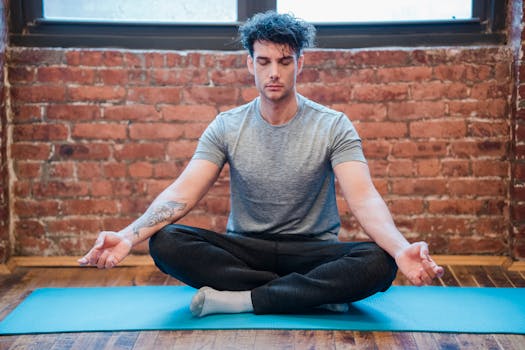
Effective Tips for Managing Stress: Your Ultimate Guide
Takeaways: Stress management is essential for maintaining mental health. By incorporating relaxation techniques, mindfulness practices, and self-care routines into your daily life, you can significantly reduce stress levels and enhance your overall well-being.
Stress is an inevitable part of life. Whether it’s due to work, relationships, or unexpected life events, we all experience stress at some point. However, it’s crucial to manage stress effectively to maintain our mental and physical health. In this article, we will explore various strategies for managing stress, including relaxation techniques, mindfulness practices, and self-care routines.
Understanding Stress
Before diving into stress management techniques, it’s important to understand what stress is. Stress is the body’s natural response to challenging or threatening situations. It can manifest physically, mentally, and emotionally. While a small amount of stress can be beneficial, chronic stress can lead to serious health issues, including anxiety, depression, and cardiovascular problems.
Effective Relaxation Techniques

1. Deep Breathing Exercises
Deep breathing is a simple yet effective way to reduce stress. It helps to lower heart rate and blood pressure, promoting a sense of calm. To practice deep breathing, find a quiet space, sit comfortably, and inhale deeply through your nose, allowing your abdomen to expand. Hold your breath for a few seconds, then exhale slowly through your mouth. Repeat this for several minutes.
2. Progressive Muscle Relaxation
This technique involves tensing and then relaxing each muscle group in your body. Start with your toes and work your way up to your head. As you tense each muscle group, hold for a few seconds, then release and notice the difference in sensations. This method can help release physical tension associated with stress.
3. Visualization
Visualization is a powerful technique that involves imagining a peaceful scene or experience. Close your eyes and picture a relaxing place, such as a beach or forest. Engage all your senses; imagine the sounds, smells, and feelings associated with that place. This can help transport your mind away from stressors.
Mindfulness Practices

1. Mindful Meditation
Set aside time each day for mindful meditation. Find a quiet space, sit comfortably, and focus on your breath. Allow thoughts to come and go without judgment. If your mind wanders, gently bring your focus back to your breath. This practice can help cultivate a sense of calm and reduce anxiety.
2. Mindful Walking
Walking can be a form of mindfulness practice. Pay attention to each step, the sensation of your feet touching the ground, and your surroundings. Observe the colors, sounds, and smells without judgment. This practice helps to ground you in the present moment.
3. Gratitude Journaling
Take a few minutes each day to write down things you are grateful for. This practice shifts your focus from stressors to positive aspects of your life, fostering a sense of well-being and contentment.
Self-Care Strategies

1. Regular Exercise
Physical activity is a great way to reduce stress. Exercise releases endorphins, which are natural mood lifters. Aim for at least 30 minutes of moderate exercise most days of the week, whether it’s walking, running, yoga, or dancing.
2. Healthy Nutrition
What you eat can affect your mood and energy levels. Focus on a balanced diet rich in fruits, vegetables, whole grains, and lean proteins. Avoid excessive caffeine and sugar, which can increase anxiety and disrupt sleep.
3. Adequate Sleep
Sleep is crucial for stress management. Aim for 7-9 hours of quality sleep each night. Create a calming bedtime routine, limit screen time before bed, and ensure your sleep environment is comfortable and conducive to rest.
Conclusion
Managing stress effectively is vital for maintaining a healthy lifestyle. By incorporating relaxation techniques, mindfulness practices, and self-care strategies into your daily routine, you can significantly reduce stress and improve your overall well-being. Remember, it’s essential to find what works best for you and make stress management a priority in your life.





